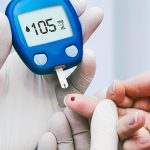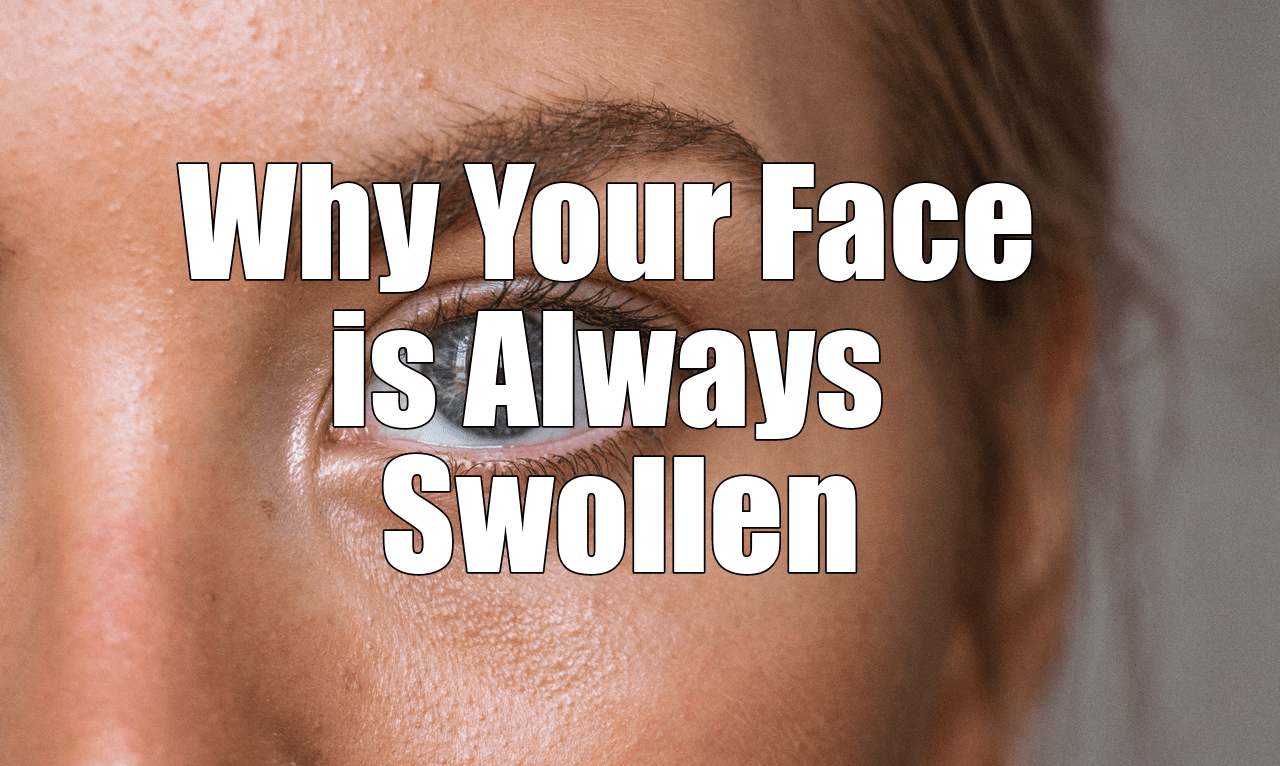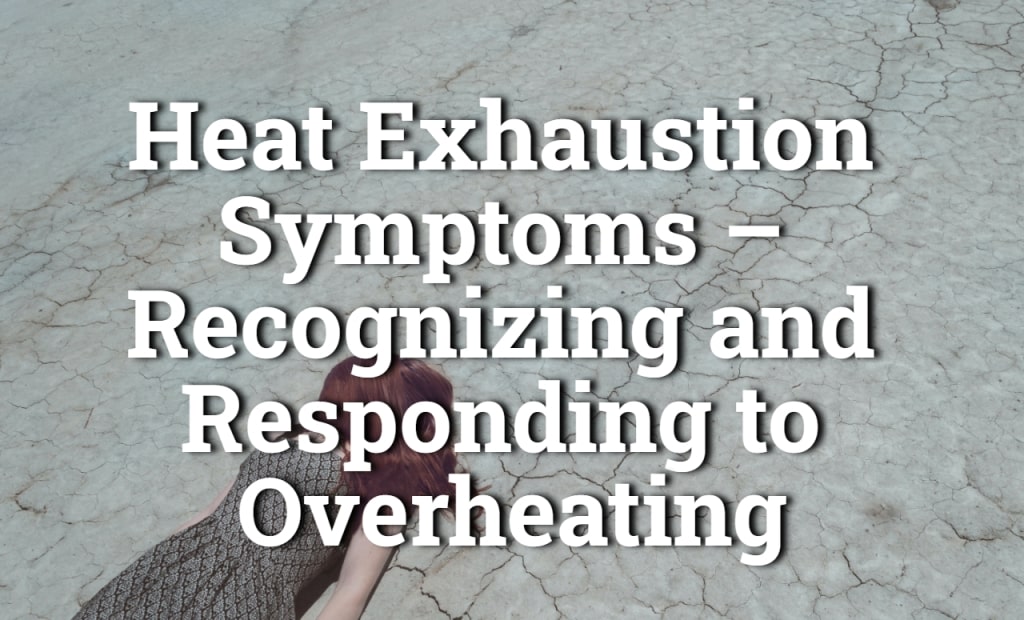Many people deal with a swollen face at some point in their lives. It can be an uncomfortable and concerning issue. Persistent facial swelling can be due to various causes, from common allergies to serious health conditions. In some cases, swollen salivary glands may contribute to facial swelling. The tissues of the face can become inflamed due to various reasons, leading to facial edema. Sometimes, a medication allergy could be the culprit, causing trouble breathing and swollen facial features.
Swelling in the face can be a symptom of a condition that needs medical attention. In some cases, it could be a sign of superior vena cava syndrome, a serious medical issue. In others, it might be a side effect of certain medications or a symptom of an underlying health condition. Understanding the cause of your persistent facial swelling is the first step towards addressing it. This article will discuss the reasons behind facial swelling and provide strategies on how to prevent it.
Normal vs. Abnormal Swelling
Swelling in the face can be classified into two types: normal and abnormal. Normal swelling is usually temporary and is often caused by minor injuries, allergies, or infections. It typically subsides on its own or with the help of home remedies like cool compresses. On the other hand, abnormal swelling lasts longer and may be accompanied by other symptoms such as slurred speech or trouble breathing.
Abnormal swelling can be a sign of a serious health condition. It may be due to an infection, a hormonal imbalance, or a medical condition like superior vena cava syndrome. If you notice persistent or severe swelling in your face, it’s important to consult a healthcare professional. They can help identify the cause of the swelling and suggest appropriate treatment options.
12 Reasons for Your Facial Swelling
The reasons for facial swelling can be numerous, ranging from allergic reactions to seasonal allergies or an underactive thyroid. Some people may experience facial puffiness due to fluid retention or eye infections. In some cases, the swelling may be due to a more serious issue like hormonal imbalances when the thyroid is underactive.
In the following sections, we will discuss 12 common causes of facial swelling.
1. Sinus Infection: A Common Culprit
A sinus infection is one of the most common causes of facial swelling. The inflammation or infection of the sinuses can lead to an accumulation of mucus, giving rise to facial discomfort and swelling. The pressure caused by the mucus can lead to puffiness around the eyes and cheeks. Sinus infection-related facial swelling usually subsides with proper treatment.
Notably, sinus infections can be both acute and chronic. Acute sinus infections are often caused by a cold and resolve within a few weeks. Chronic sinus infections, however, can last for more than 12 weeks and may require more extensive treatment. If you suspect a sinus infection is causing your face to swell, consult with a healthcare provider for appropriate treatment options.
2. Allergic Reaction: When Your Body Fights Back
Allergic reactions can often lead to facial swelling. Common triggers include food allergies, drug allergies, and insect bites. In some cases, exposure to certain plants like poison ivy can cause an allergic reaction. Nonsteroidal anti-inflammatory drugs (NSAIDs) can also cause allergic reactions in some individuals. When the body fights back against these allergens, it can result in puffiness and swelling in the face.
Anaphylaxis is a severe, whole-body allergic reaction that can cause significant facial swelling. It’s often triggered by food allergies, drug allergies, or insect bites like a bee sting. Anaphylaxis requires immediate emergency treatment to prevent the airway from becoming compromised. If you suspect you’re experiencing anaphylaxis, call 911 and administer emergency allergy medication if available while waiting for emergency medical personnel to arrive.
3. Abscessed Tooth: A Hidden Cause
An abscessed tooth can be an unexpected cause of facial swelling. This condition often occurs when a tooth becomes cracked or chipped, or when a cavity goes untreated. The damage allows bacteria to infiltrate the pulp of the tooth, leading to a tooth infection.
As per the Cleveland Clinic, the bacteria can multiply, causing an abscess, or a collection of pus. This results in swelling around the tooth or gums, and often produces a severe toothache. If you notice such symptoms, it’s important to seek medical help. A root canal may be a necessary treatment to alleviate the infection and swelling.
4. Cushing’s Syndrome: A Rare but Possible Explanation
Cushing’s syndrome, although rare, could be a possible explanation for persistent facial swelling. This condition happens when your adrenal glands produce an excessive amount of the stress hormone cortisol. The hormone cortisol plays a crucial role in managing blood pressure and blood sugar. However, too much of this hormone is harmful and can lead to a round face and weight gain, among other symptoms.
As per the information provided, skin that bruises easily and weak muscles are also signs of this syndrome. If left untreated, Cushing’s syndrome can lead to severe complications with your heart, bones, and lungs. Therefore, timely medical intervention is essential for those exhibiting such symptoms.
5. Allergic Conjunctivitis: An Eye Condition That Can Cause Swelling
Allergic conjunctivitis, also known as pink eye, is an eye condition that can cause facial swelling. This inflammation of the eye is often a result of an allergic reaction, such as a bee sting. The body’s reaction to the allergen can cause the eyes to become inflamed leading to burning eyes and other symptoms of allergic rhinitis.
Reacting swiftly to these symptoms is crucial. If a bee sting is the cause of the allergic conjunctivitis, immediate removal of the stinger is necessary. Regardless of the cause, it’s important to seek medical attention to properly treat the condition and prevent further complications.
6. Broken Nose: An Injury-Induced Swelling
Facial swelling is a common consequence of a broken nose. Such an injury not only affects the nose but also the region surrounding the nose and eyes. The trauma can lead to a crooked nose, bruising, nosebleed, and pain.
While not all broken noses require medical treatment, it is always advisable to consult a doctor if you’ve suffered a facial injury. Cold compresses are often recommended for immediate relief. In severe cases, surgery might be necessary to correct the damage and reduce the swelling.
7. Superior Vena Cava Syndrome: A Serious Medical Issue
Superior Vena Cava Syndrome (SVCS), a serious medical condition, can result in persistent swelling in the face and neck. SVCS occurs when the superior vena cava, a large vein that carries blood from the head, neck, and upper chest back to the heart, becomes obstructed. The obstruction can be due to various reasons, including a tumor pressing against the vein or a swollen thyroid.
SVCS can lead to gradual symptoms like shortness of breath, cough, difficulties swallowing, headaches, and dizziness. If you experience these symptoms, it is crucial to visit the emergency room immediately. This syndrome requires immediate medical attention due to its potential to develop severe complications.
8. Hormonal Imbalance: When Your Thyroid is Out of Whack
One of the potential causes of persistent swelling on your face is a hormonal imbalance, particularly when your thyroid gland is not functioning properly. This butterfly-shaped gland located in the throat is responsible for the production of hormones that regulate your metabolism and body temperature. If it produces too little of these hormones, your subcutaneous tissues, the layers beneath your skin, can enlarge, leading to facial swelling.
Some individuals suffering from hypothyroidism may experience a condition known as myxedema, characterized by facial swelling. Additional symptoms may include dry skin, irregular periods, and feelings of weakness and cold. If you notice these symptoms, a simple blood test by a doctor can identify the problem. Once the underlying issue is addressed, for example through medication, the facial swelling is likely to reduce.
9. An Underlying Skin Infection: Cellulitis and Others
Cellulitis is a bacterial infection that can cause swelling of the face. This infection occurs in the layers of the skin, triggering symptoms such as swelling, pain, and warm skin. It can develop from a variety of causes, and the immune system’s response to the bacteria can lead to the visible swelling.
If you suspect cellulitis due to these symptoms, it is crucial to consult a medical professional promptly. Your doctor may prescribe antibiotics to counter the infection. Complementing this treatment with warm compresses can help soothe the skin and reduce swelling.
10. Rosacea: A Chronic Skin Disease
Rosacea, a chronic skin disease, can also be a reason for facial swelling. Flare-ups of rosacea can be triggered by various factors including hot weather, spicy foods, alcohol, and even emotional stress. These triggers can lead to symptoms such as facial flushing, burning, and swelling.
Facial swelling caused by rosacea does not always improve on its own, and it may get worse during flare-ups. Implementing a skincare routine that includes a gentle cleanser, moisturizer, and daily sunscreen can help manage the symptoms. If the condition persists, consultation with a dermatologist is recommended. They can prescribe creams or pills to help calm the inflammation related to rosacea.
11. The Result of Certain Medications: Steroids and Others
Certain medications, like steroids, can induce facial swelling. Steroids are often prescribed for various medical conditions, and while beneficial in many cases, they can have adverse effects when taken for a prolonged period or at the wrong dosage. One of these side effects is weight gain, which can contribute to facial swelling.
Another possible trigger for facial swelling is a drug allergy. An allergic reaction to a medication can cause various symptoms, including facial swelling. If you suspect that a reaction to a medication is causing your facial swelling, it is important to consult a healthcare provider immediately to discuss alternative treatment options.
12. Other Autoimmune Disorders: Sjogren’s Syndrome and More
Autoimmune disorders such as Sjogren’s Syndrome, systemic lupus, and polymyositis can also cause swelling of the face. These conditions trigger an abnormal immune response, causing the body to attack its own tissues and leading to various symptoms, including facial swelling.
Other symptoms of these autoimmune disorders can mimic symptoms of hypothyroidism, such as fatigue and joint pain. If you notice these symptoms along with facial swelling, it is advisable to consult your doctor. Proper diagnosis and treatment can help manage the symptoms and reduce facial swelling.
When to Consult a Doctor
While occasional facial swelling can often be managed at home, there are instances when seeking medical treatment is crucial. If your facial swelling continues to worsen, causes significant discomfort, or interrupts your daily tasks, it’s time to consult a physician. This includes difficulty in performing simple routines such as brushing your teeth, eating, or even opening your eyes due to swelling.
Moreover, if you have knowingly consumed something that you’re allergic to and your face starts swelling, immediate medical attention is necessary. Ignoring these symptoms may lead to a severe allergic reaction known as anaphylaxis. If not promptly treated with epinephrine, this condition can become a life-threatening medical emergency.
Prevention Strategies to Keep Your Face from Swelling
Preventing facial swelling often involves understanding its underlying causes and addressing them. For instance, minor trauma or dehydration-induced swelling can typically be treated at home. Applying a cool compress can help reduce redness and swelling. However, in cases of allergies or infections causing the swelling, it is best to consult a medical professional for proper management and treatment.
Furthermore, if the swelling is due to hormonal imbalances like hypothyroidism, it’s essential to manage these conditions under a doctor’s guidance to prevent recurrent facial swelling. Whether the swelling is caused by an allergic reaction, infection, or hormonal imbalance, it’s crucial to identify and address the root cause to effectively manage and prevent facial swelling.
Conclusion: Decoding the Puzzle of Persistent Facial Swelling
Persistent facial swelling is often a complex puzzle that requires careful consideration. Identifying the underlying medical condition, whether it’s a long-term bacterial infection, hormonal imbalance, or a severe allergic reaction, is crucial. It’s also important to recognize that symptoms like hives or rash, sore throat, watery eyes, and a rapid heart rate could indicate a more serious condition, like anaphylaxis. In such cases, immediate emergency medicine is required. As such, understanding the various causes, knowing when to seek medical help, and implementing preventive strategies are key to managing persistent facial swelling effectively.



























